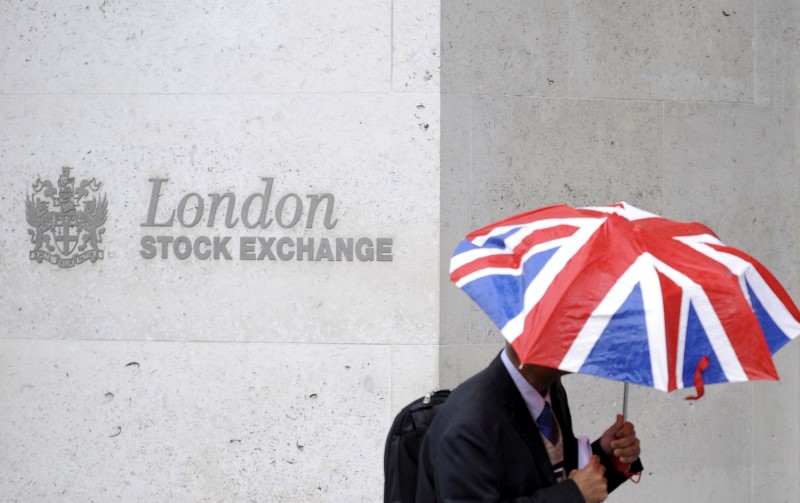By Nigel Stephenson
LONDON (Reuters) - Investors sold sterling and stocks on Monday, seeking shelter in gold and the Japanese yen as uncertainty over Britain's departure from the European Union and the policies of U.S. President-elect Donald Trump curbed appetite for risky assets.
U.S. markets were closed for the Martin Luther King Day holiday, crimping market activity and potentially exacerbating price moves.
The dollar (DXY) rose, except against the yen, rebounding after suffering its worst week since November last week, when it was hit by a lack of clarity over what Trump, whose inauguration is on Friday, will do once he assumes office.
The price of gold, a frequently sought haven for investors in uncertain times, hit its highest level since November.
"The market is taking a reality check from Trump euphoria, equity markets are moving sideways, the dollar has steadied and bond yields are down, allowing gold to recover," Julius Baer commodities analyst Carsten Menke said.
Yields on low-risk German government bonds fell, but those on Italian equivalents edged up after rating agency DBRS cut Italy's credit rating late on Friday, a move that could raise borrowing costs for the country's banks.
But the eye-catching mover was Britain's pound, a day before a speech by British Prime Minister Theresa May. Media reported that she would lay out an exit from the EU that would see Britain lose access to the bloc's single market.
The pound
Investors will scrutinize May's speech for clues to whether she plans to prioritize immigration controls in a "hard Brexit" that some analysts say could hurt the economy.
The fall in sterling, which makes UK exports cheaper, has contributed to an unprecedented 14-day rally in the blue-chip FTSE 100 stock index (FTSE).
The index fell 0.2 percent on Monday but still outperformed continental European markets. The main STOXX 600 index (STOXX) fell 0.8 percent, as declines in autos and banks offset a rally in eyewear makers Luxottica (MI:LUX) and Essilor (PA:ESSI), who agreed a 46 billion-euro merger.
German carmakers BMW (DE:BMWG), Daimler
MSCI's broadest index of Asia-Pacific shares outside Japan (MIAPJ0000PUS) eased 0.6 percent, Japan's Nikkei (N225) lost 1 percent as the strong yen hit exporters.
Sterling last traded at $1.2055, down 1 percent on the day. The euro was up 0.6 percent at 87.97 pence (EURGBP=) while the yen was up 0.8 percent at 137.40 to the pound.
"Every time there’s hard Brexit headlines, that triggers a fresh bout of selling," MUFG currency analyst Lee Hardman said.
"It's almost impossible to see Europe allowing the UK to remain a full member of the single market if it wants to regain control of the border and the laws and wants to strike its own agreement," he added.
The dollar index (DXY), which measures the U.S. currency against six of its peers, rose 0.4 percent. The euro <EUR=> fell 0.4 percent to $1.0602 while the yen, another perceived safe haven investment, rose 0.5 percent to 113.99 per dollar.
ITALY DOWNGRADED
German 10-year bond yields fell 2 basis points to 0.25 percent <DE10YT=TWEB>. Italian 10-year yields, by contrast, rose marginally to 1.90 percent.
Italy's downgrade will mean Italian banks will have to pay more to borrow money from the European Central Bank when they use the country's sovereign bonds as collateral. It may also make Italian debt less attractive for foreign buyers.
Oil held steady, though doubts that large oil producers will cut output, as agreed by the Organization of the Oil Producing Countries and others, put prices under pressure
Brent, the international benchmark, last traded at $55.37 a barrel, down 8 cents on the day (LCOc1).
For Reuters Live Markets blog on European and UK stock markets see reuters://realtime/verb=Open/url=http://emea1.apps.cp.extranet.thomsonreuters.biz/cms/?pageId=livemarkets
